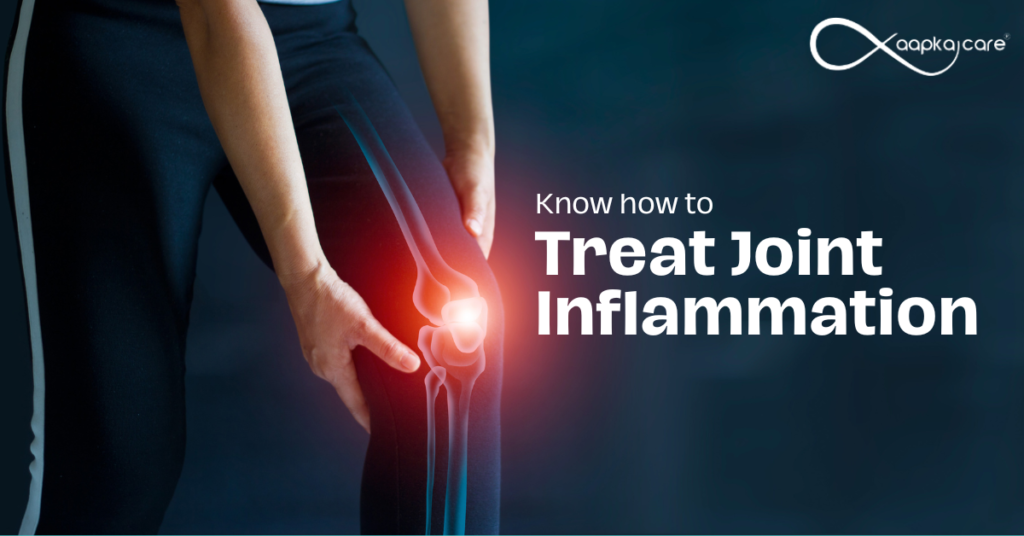
Introduction:
Inflammation of the joints, which is frequently connected with disorders such as arthritis, can result in discomfort, stiffness, and decreased mobility, which in turn can have an effect on the quality of life of millions of individuals all over the world. The management of joint inflammation typically involves the use of medical interventions such as drugs and physical therapy. However, natural therapeutic methods can play a key role in reducing symptoms and supporting joint health. The purpose of this in-depth guide is to provide individuals with information regarding the causes and symptoms of joint inflammation, as well as the natural therapy choices that are available to assist them in properly managing this illness.
Understanding Joint Inflammation:
Joint inflammation, sometimes referred to as arthritis, is the inflammation of one or more joints in the body. Joint inflammation can be caused by multiple factors. There are a number of potential causes for this condition, some of which include autoimmune illnesses, injuries, infections, or the gradual wear and tear that occurs on the joints over time. Examples of common varieties of arthritis include rheumatoid arthritis, osteoarthritis, and gout. Each of these types of arthritis is distinguished by its own unique set of symptoms and underlying processes. The activation of the immune system is often the source of joint inflammation, which results in swelling, pain, and stiffness in the joints that are affected. This is true regardless of the precise cause of the inflammation. Rheumatoid arthritis is an example of an autoimmune form of arthritis, in which the immune system erroneously assaults the tissues that line the joints, resulting in inflammation and damage to the damaged joints. In contrast, osteoarthritis is predominantly a degenerative disorder that is characterised by the breakdown of cartilage in the joints. This breakdown causes friction and irritation when the bones grind against each other, which is the primary symptom of osteoarthritis. The formation of uric acid crystals in the joints is the root cause of gout, which is another prevalent form of arthritis. This condition is characterised by excruciating pain and inflammation.
Symptoms of Joint Inflammation :
The symptoms of joint inflammation can vary depending on the underlying cause of the ailment as well as the severity of the condition itself. Pain, edoema, stiffness, and a diminution in range of motion are typical manifestations of this condition. One of the most prominent symptoms of inflammation and arthritis is pain in the joints. Depending on the severity of the pain, it could be slight discomfort or severe, debilitating agony that makes it difficult to carry out regular activities. Inflamed joints frequently have a swollen appearance and a heated sensation when touched. The localised buildup of fluid and inflammatory cells in the joint space is the root cause of swelling. It is normal for people who have joint inflammation to experience stiffness in their joints, particularly in the morning or after periods of inactivity. It is possible that stiffness will ease with movement, but it may become worse with prolonged rest. In addition, inflammation of the joints can result in a decreased range of motion, which makes it harder to carry out activities of daily living such as walking, bending, or grabbing objects.
Natural Treatment Options for Joint Inflammation:
While conventional therapies such as anti-inflammatory drugs and corticosteroid injections are widely used to control joint inflammation, many individuals prefer natural alternatives to reduce symptoms and enhance joint health. It has been demonstrated that a number of natural treatment alternatives have the potential to alleviate pain, reduce inflammation, and increase joint mobility at the same time. Modifications to one’s lifestyle, as well as dietary adjustments, herbal supplements, and physical treatment, are included in this category.
- Dietary Modifications:
Inflammation and joint health are both significantly influenced by diet, which is why dietary modifications are so important. It has been demonstrated that particular meals and nutrients either increase or decrease the amount of inflammation that occurs in the body. The consumption of a well-balanced diet that is abundant in anti-inflammatory foods like fruits, vegetables, whole grains, and healthy fats can assist in the reduction of joint inflammation and the alleviation of joints that are affected by arthritis. It has been demonstrated that foods that are high in omega-3 fatty acids, such as walnuts, flaxseeds, chia seeds, and fatty fish (salmon, mackerel, and sardines), have anti-inflammatory effects and may help alleviate joint pain and stiffness. In addition, if you include turmeric, ginger, garlic, and other spices that are recognised for their anti-inflammatory properties in your diet, you may find that you have relief from joint inflammation.
- Herbal Supplements:
The potential benefits of herbal supplements in the management of joint inflammation and arthritis have been the subject of research done on a number of different herbal supplements. In addition to devil’s claw, turmeric, ginger, and Boswellia are among the herbs that are utilised the most frequently. Individuals who suffer from arthritis may find relief from their pain and an improvement in joint function by utilising these herbs, which contain bioactive chemicals that have anti-inflammatory and analgesic qualities. For instance, curcumin, which is the active component of turmeric, has been demonstrated to block inflammatory pathways and lower the generation of pro-inflammatory cytokines that are related with arthritis. To a similar extent, ginger contains gingerol, which is a chemical that possesses powerful anti-inflammatory qualities and has the potential to ease joint pain and stiffness.
- Physical Therapy:
Enhancing joint mobility, strength, and flexibility is the primary objective of physical therapy, which plays a significant part in the management of joint inflammation. In order to treat joint pain and stiffness, a physical therapist can build a personalised exercise programme that is suited to your unique needs and goals. This programme will focus on stretching, strengthening, and range of motion exercises. In addition, treatments such as heat therapy, cold therapy, ultrasound, and electrical stimulation may be utilised in order to lessen the inflammation and speed up the healing process in the joints that are damaged. Sessions of physical therapy on a regular basis can assist improve joint function and lessen the likelihood of future flare-ups with the condition.
- Alterations to Lifestyle:
In addition to dietary adjustments and the use of herbal supplements, some alterations to one’s lifestyle can assist in the reduction of joint inflammation and the improvement of overall joint health. The maintenance of a healthy weight is of the utmost importance, since being overweight places additional strain on the joints, which in turn exacerbates inflammation and pain. Walking, swimming, or cycling are all examples of activities that can help develop the muscles around the joints, enhance flexibility, and reduce stiffness. Engaging in regular physical activity can assist strengthen these muscles. In addition, it is essential to steer clear of activities that include high-impact movements and repeated motions, as these might increase joint pain. In addition, the management of stress through relaxation techniques such as yoga, meditation, and deep breathing can assist in the reduction of inflammation and the promotion of general well-being.
Conclusion
Inflammation of the joints, which is characterised by pain, swelling, and stiffness in the affected joints, can have a substantial influence on the quality of life of those who suffer from arthritis and other inflammatory disorders. When it comes to the management of joint inflammation, medical therapies such as anti-inflammatory medicines and corticosteroid injections are frequently utilised. However, natural therapeutic options also play a crucial role in easing symptoms and supporting joint health. In individuals who suffer from arthritis, alterations to their lifestyle, as well as dietary modifications, herbal supplements, physical therapy, and other lifestyle modifications, can help reduce inflammation, alleviate pain, and enhance joint mobility. It is possible for individuals to properly control joint inflammation and see an improvement in their quality of life if they incorporate these natural treatments into their daily routine.



